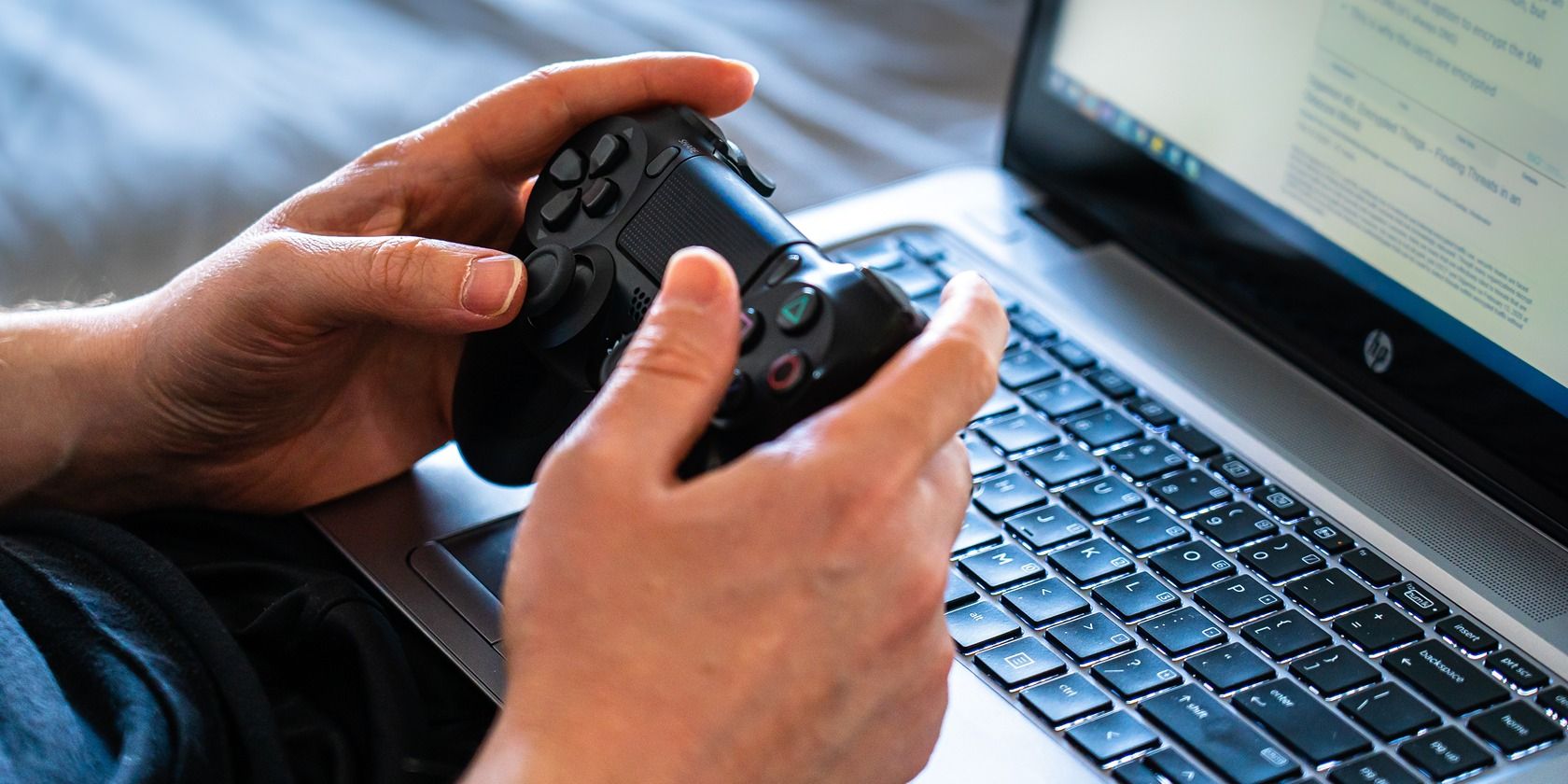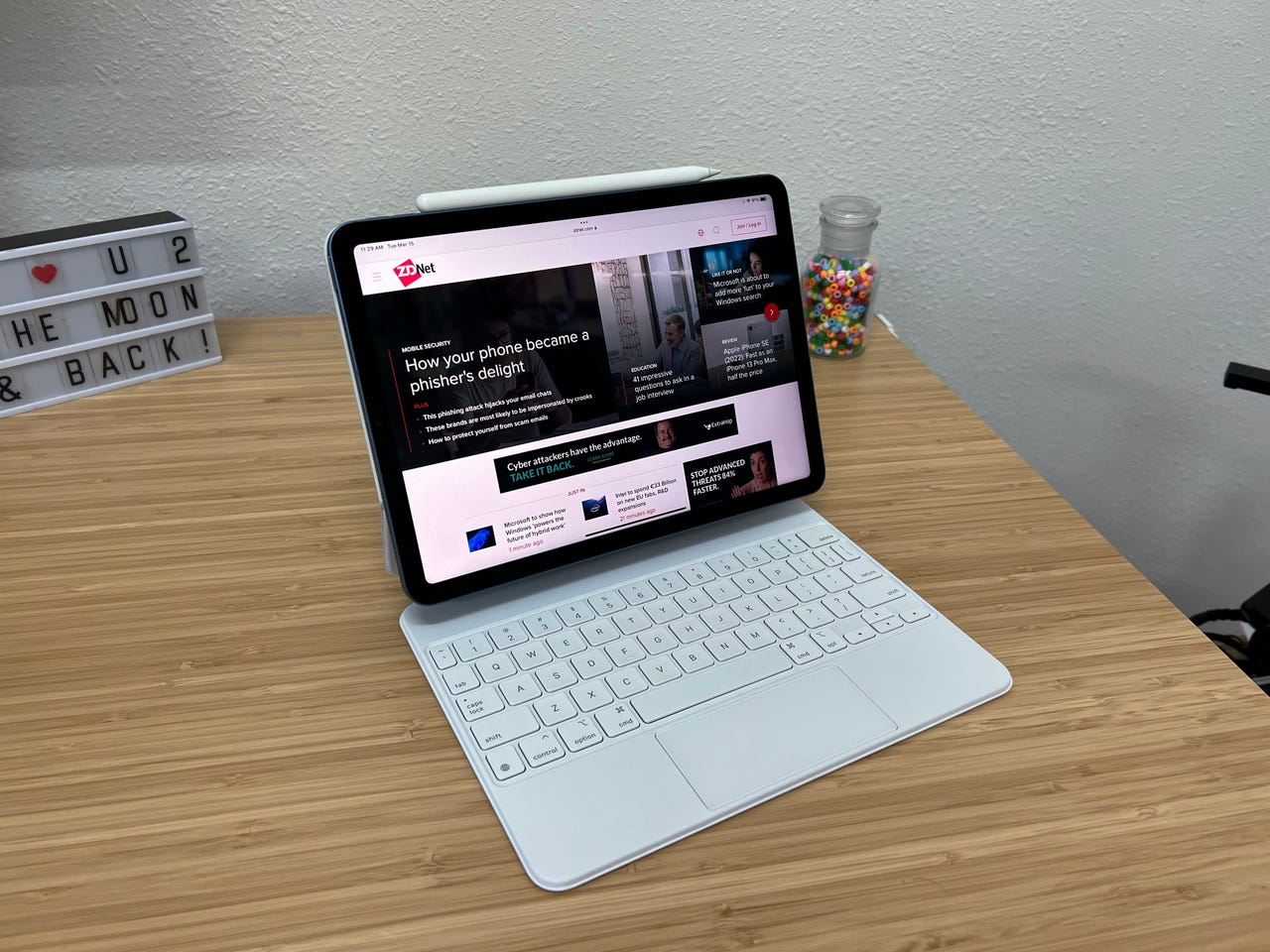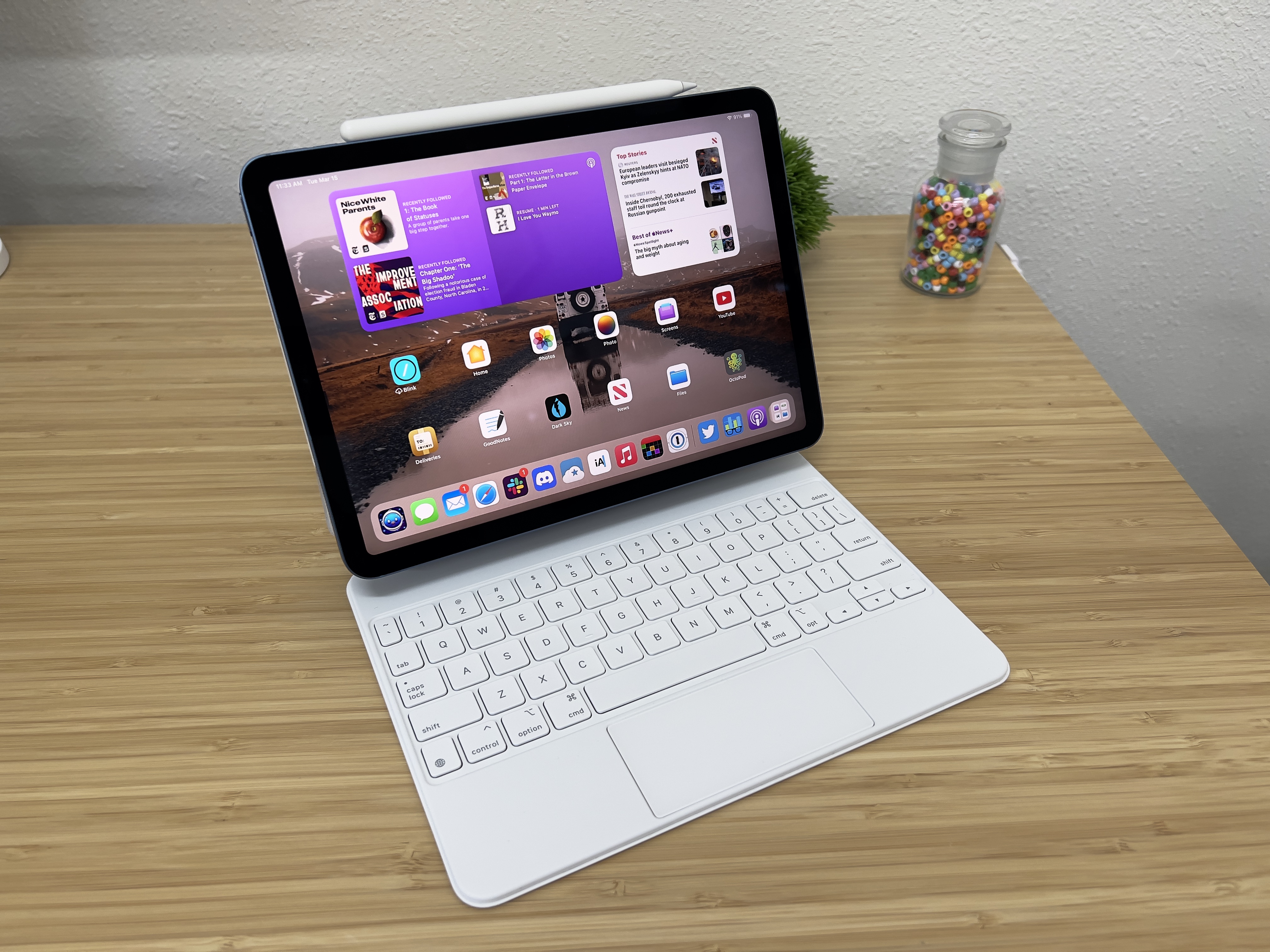
Beyond the Surface: The Real Price You Pay for 'Free' Smartphones Offered by Mobile Networks

Exceptional Performance: Why the IPad Air Makes Me Reconsider the Worth of My iPad Pro

Jason Cipriani/ZDNet
Apple’s tablet lineup is complete. Or at least, on the same page. Apple announced the fifth-generation iPad Air during its Peek Performance event in early March. The new Air has a beefed-up processor, new color options, 5G connectivity and Center Stage, Apple’s fancy video call feature for the front camera.
For the last five days, I’ve been testing the iPad Air, replacing my iPad Pro -- which is normally within arms reach at all times – with the new Air. Outside of display differences (both in size and quality), I haven’t missed my iPad Pro one bit. And heck, I imagine with another week of use, I won’t even miss my Pro’s 12.9-inch screen.
 Apple iPad Air (fifth-generation) 4.5 / 5 Very good
Apple iPad Air (fifth-generation) 4.5 / 5 Very good
pros and cons
Pros
- Performance
- Battery life
- 5G connectivity
- Faster USB-C
Cons
- 64GB base storage makes no sense
- iPadOS needs to take advantage of power
My experience with the iPad Air has been everything I figured it would be with strong performance and long battery life. And as much as I hate to admit it, there’s a touch of buyer’s remorse thrown in.
Disclaimer: This post includes affiliate links
If you click on a link and make a purchase, I may receive a commission at no extra cost to you.
Design
Jason Cipriani/ZDNet
A few years ago it felt as if Apple had all but forgotten about the iPad Air. But in 2020 we saw a fresh new design come to the fourth generation iPad Air. Just 18 months later, Apple has once again updated the iPad Air. Only instead of a complete design overhaul for the fifth-generation Air, this year’s update focuses on performance.
Also: iPad Air (2022) vs iPad Pro (2022): How to choose
That means the outside of this year’s iPad Air looks identical to the 2020 model, save for new colors. The iPad Air now comes in space gray, pink, purple, blue and starlight.
ZDNET Recommends
The iPad Air still has a 10.9-inch Liquid Retina display that reaches nearly edge-to-edge. There’s a new 12-megapixel ultra wide FaceTime camera centered at the top of the screen.
Also: The best iPad Air cases
After Apple released the ninth-generation iPad, the iPad Air was the only tablet left in the lineup that lacked Apple’s Center Stage feature for the FaceTime camera. The new iPad Air gains Center Stage, which uses the wide-angle camera to keep you in the frame of video calls in FaceTime and third-party apps like Zoom. It’s a handy feature to have and use, and one I’m sure iPad Air owners will find convenient as well.
On the right edge of the tablet are the volume up/down buttons and a space to store/charge a second-generation Apple Pencil.
If you opt for a cellular model, you’ll also find a nano-SIM card tray on the right side of the iPad Air. You don’t have to use the SIM tray, however, as the Air supports eSIM technology that allows you to set up service with your carrier of choice with the tap of just a few buttons. The iPad Air now supports 5G cellular connectivity, but not mmWave, only the slower Sub6 standard. Don’t be discouraged, though. Just like with the new iPhone SE , the lack of mmWave isn’t a dealbreaker due to the lack of widespread rollout and issues with signal interference.
On the top of the iPad Air is the top button that continues to double as a fingerprint reader with Touch ID built into it. It’s fast and easy to wake and unlock the iPad Air by pressing and then resetting your finger on the top button.
Jason Cipriani/ZDNet
As with the last refresh of the iPad Air, for the first day or so I missed my iPad Pro’s Face ID unlock method, but as I sit here writing this review, my muscle memory is already reaching for the top button to unlock the iPad Air or authenticate my password manager.
For charging and syncing the iPad Air, there’s a USB-C port on the bottom of the housing. Apple opted to not include Thunderbolt 4 capabilities in the iPad Air’s USB-C port, even though it, in theory, would support it. Instead, you can expect up to 10Gbps transfer speeds when doing things like offloading photos or videos from a digital camera, as well as output up to 6K when connected to an external monitor. Thanks to the speed boost of the USB-C port, the iPad Air is compatible with Apple’s new Studio Display when it comes to using the full resolution of the screen. You won’t be able to extend your iPad’s display to it, nor can you use the display’s built-in camera for FaceTime calls. Instead, you’re stuck mirroring your iPad’s display to the monitor.
On the back of the iPad Air is Apple’s Smart Connector for use with one of Apple’s keyboard accessories, like the $299 Magic Keyboard or the $179 Smart Keyboard Folio . Also located on the back of the Air is a 12-megapixel rear camera.
Also: Best cheap tablets
Performance
Jason Cipriani/ZDNet
Apple’s spring event had the tagline of “Peek Performance” and for good reason. The Mac Studio , according to Apple, is the most powerful Mac in its lineup. The iPhone SE uses the same design as its predecessor, but has brand-new internals that makes it just as powerful as the iPhone 13 Pro Max . The new iPad Air takes the same route the iPhone SE took, using the same design as the 2020 iPad Air, but with a big increase in performance thanks to Apple adding the M1 Apple processor.
Also: Apple iPhone SE (2022) review: As fast as iPhone 13 Pro Max, but half the price
ZDNET Recommends
It’s the same processor that Apple debuted in the MacBook Air, MacBook Pro and Mac Mini to begin the transition from Intel processors to its own Apple Silicon processors. Last year, Apple added the M1 chip to the iPad Pro lineup, and now it’s trickled down to the iPad Air.
The fifth-generation iPad Air comes with 64GB for $599 or 256GB of storage for $749. I don’t understand the reasoning for starting the iPad Air at 64GB of storage. Maybe Apple has usage stats that show 64GB is more than enough for this price range to justify it. Or maybe the sales pitch is that if you need more base storage, then the iPad Pro is where to look. Either way, 64GB of storage feels like it’s just not enough space, especially if you have an Apple One subscription that provides access to the Apple Arcade, Apple TV+ and Apple Music catalogs.
Like I did with the new iPhone SE, I ran the Geekbench 5 benchmark app on the new iPad Air to compare its performance to the 2021 iPad Pro. Mind you, benchmarks aren’t the only way to gauge a device’s performance, but they provide a baseline of what you can expect on a device. Geekbench 5 on the iPad Air resulted in a single-core score of 1,701 and a multi-core score of 7,137. I ran the same test on my personal 12.9-inch iPad Pro with the same M1 processor with 16GB of memory, compared to the iPad Air’s 8GB, and the scores were much closer than I anticipated. The iPad Pro scored 1,708 for single-core and 7,297 in the multi-core test.
In other words, the $599 iPad Air is just as powerful as my $1,999 iPad Pro. I’m starting to feel a touch of buyer’s remorse.
To see how it compared to the competition, I ran the same Geekbench 5 tests on the $899 Samsung Galaxy Tab S8 Plus , which uses Qualcomm’s Snapdragon 8 Gen 1 processor. The Tab S8 Plus scored 1,219 for single-core and 3,219 for multi-core performance. Compare the two tablets, and single-core performance is sort of close, but multi-core performance on the iPad Air is more than double that of Qualcomm’s latest chip in Samsung’s latest tablet. Crazy.
Also: Galaxy Tab S8 review: Samsung’s new tablet exceeds expectations
But, as I said, benchmarks aren’t everything. My real-world use has mirrored that of my iPad Pro. Apps not only load fast, but there are no performance issues while multitasking and using more than one app at a time.
Performance isn’t an issue with the iPad Air (or iPad Pro). However, the limiting factor for what a person can or can’t do on the tablet turned hybrid-laptop is iPadOS itself. It’s the same story that’s been written countless times over the years, but it’s getting shorter. Apple has made great strides in building out the tools that iPad power and casual users have been asking for since the transition to iPadOS. But as the company continues to increase the performance of the iPad to be equal to the Mac lineup, the expectations – right or wrong – increase as well.
That said, the iPad Air, with iPadOS 15.4, is fully capable of replacing a laptop for a lot of people.
As far as battery life is concerned, the iPad Air’s battery lasts just as long as my iPad Pro. That means I can get a full day of use out of it if it’s my lone computer for the day, or I can stretch it a few days if I’m jumping between computers and my tablet.
Apple iPad Air (fifth generation) View now at Apple
Bottom line
When it’s all said and done, you’re looking at $599 for the 64GB iPad Air, $129 for the Apple Pencil and $299 for the Magic Keyboard. That’s $1,027 to buy everything you’d need to convert the iPad Air into a 2-in-1 device, with just 64GB of storage. For some that’s sure to be enough space, but not for everyone. The base storage model should be 128GB, and it’s unfortunate that’s not the case.
But, really, the base storage is my only gripe with this year’s edition of the iPad Air. It’s as powerful as the iPad Pro, but costs hundreds of dollars less – even when you max out the storage – with a display that’s on par with the 11-inch iPad Pro.
If you’re in the market for an iPad, and the base model and iPad Mini aren’t enough for you, the iPad Air is where your search should begin, and most likely, end. The more Apple pays attention to the iPad Air, the less the 11-inch iPad Pro makes sense to me.
Featured reviews
One of the best smart thermostats I’ve tested is not made by Ecobee or Amazon
I demoed Apple’s standard iPhone 16 and didn’t envy the Pro models at all
This Lenovo laptop that transforms into an Android tablet is the most clever device I’ve tested
Forget Apple Watch Series 10: The Oura Ring is my go-to health tracker for one obvious reason
- One of the best smart thermostats I’ve tested is not made by Ecobee or Amazon
- I demoed Apple’s standard iPhone 16 and didn’t envy the Pro models at all
- This Lenovo laptop that transforms into an Android tablet is the most clever device I’ve tested
- Forget Apple Watch Series 10: The Oura Ring is my go-to health tracker for one obvious reason
Also read:
- 11 Best Location Changers for Realme 12 Pro 5G | Dr.fone
- Get the Latest Logitech HD Webcam Drivers for Enhanced Video Quality on Windows 11
- In 2024, How to Change Location on TikTok to See More Content On your Xiaomi 14 | Dr.fone
- Inside Outlook A Study of VivaVideo Functionality for 2024
- Revolutionizing UX with XR, Digital Twins & Spatial Tech: Your Ultimate Corporate Roadmap - Insights for Modern Businesses | ZDNet
- Save Big on Tech with a Bundle Deal: IPhone, iPad, Apple Watch, AirPods & Mac at the Cost of Just One Vision Pro - Discover Now!
- Shocking Trend: Virtual Reality Takes Over as More Consumers Buy Headsets than AirPods on Black Friday - The Surprising Insights From ZDNet
- Step-by-Step for Extracting Entire Facebook Records
- Sudden Breakdown of Eye Care Software? Don't Panic! Expert Guide for Resolution as Explained by ZDNet
- Tired of Traditional Workspaces? Discover the Impact of Metaverse on Tomorrow's Careers - Insights From ZDNet
- Top 6 Screen Recorder No Ads for Android for 2024
- Transform Your Gaming Experience with the Sale-Priced Acer Nitro: A Stunning 24 Curved Monitor Now Available at a Fantastic Price of Only $ 81!
- Title: Beyond the Surface: The Real Price You Pay for 'Free' Smartphones Offered by Mobile Networks
- Author: John
- Created at : 2024-12-03 22:52:02
- Updated at : 2024-12-04 20:19:28
- Link: https://techno-recovery.techidaily.com/beyond-the-surface-the-real-price-you-pay-for-free-smartphones-offered-by-mobile-networks/
- License: This work is licensed under CC BY-NC-SA 4.0.